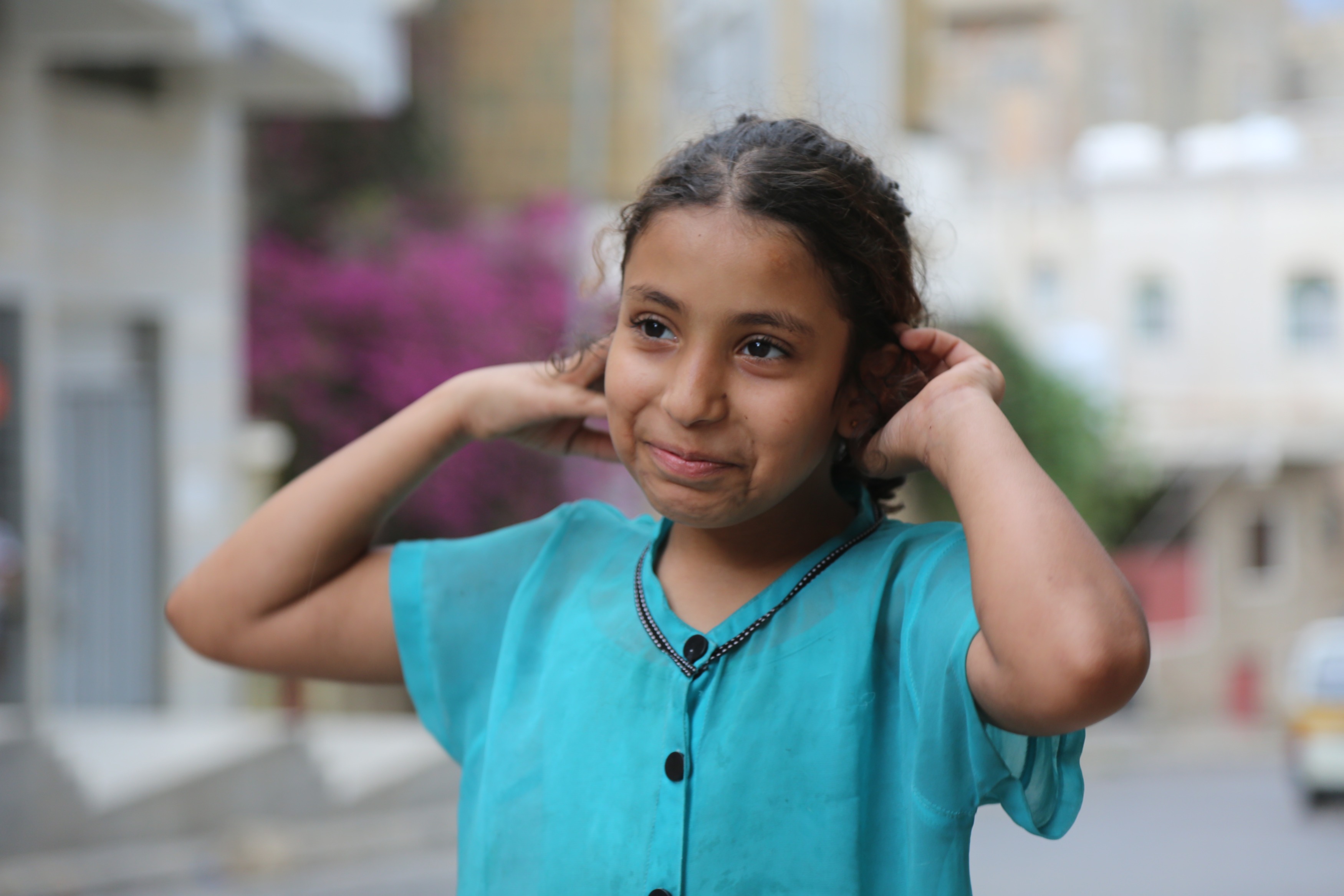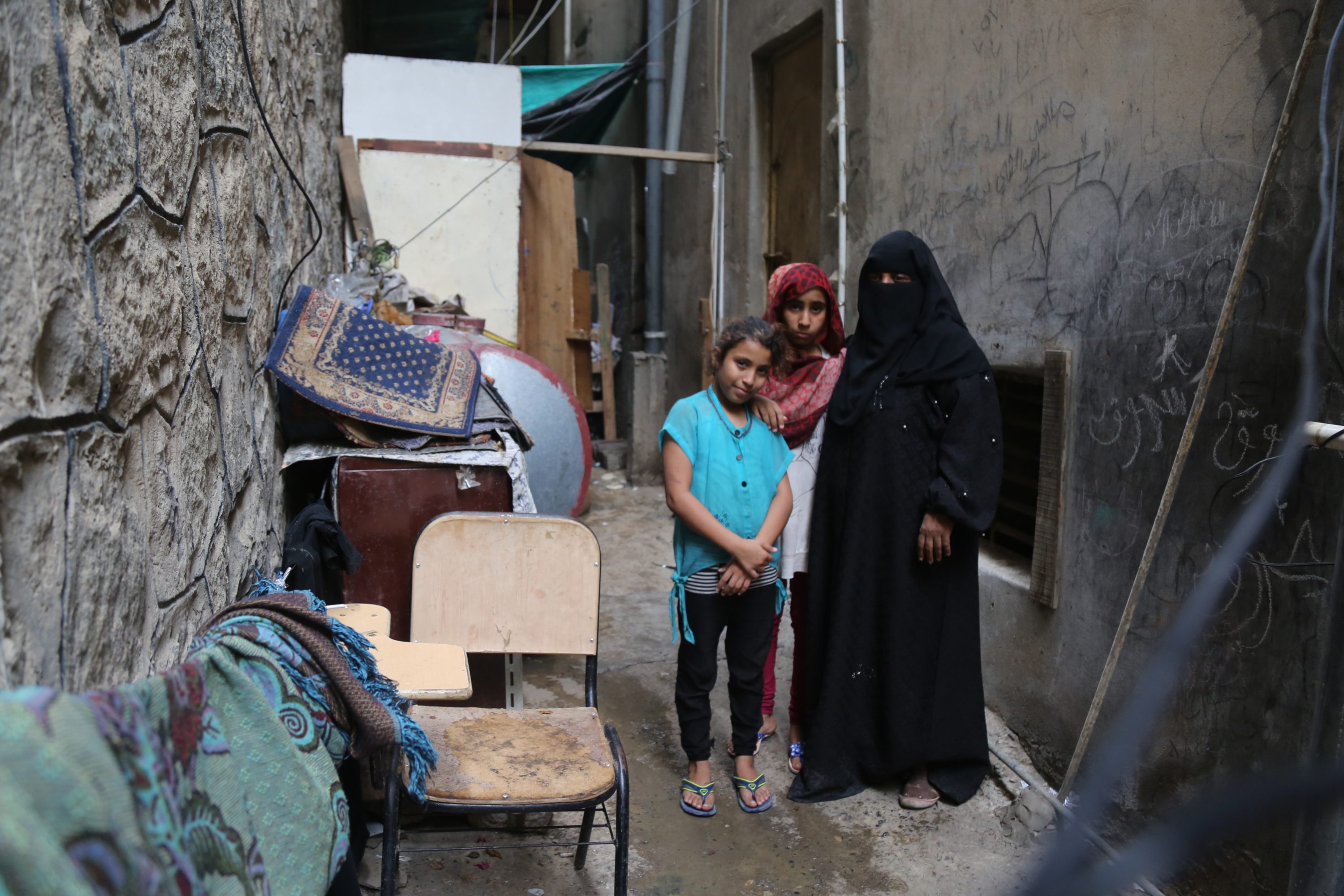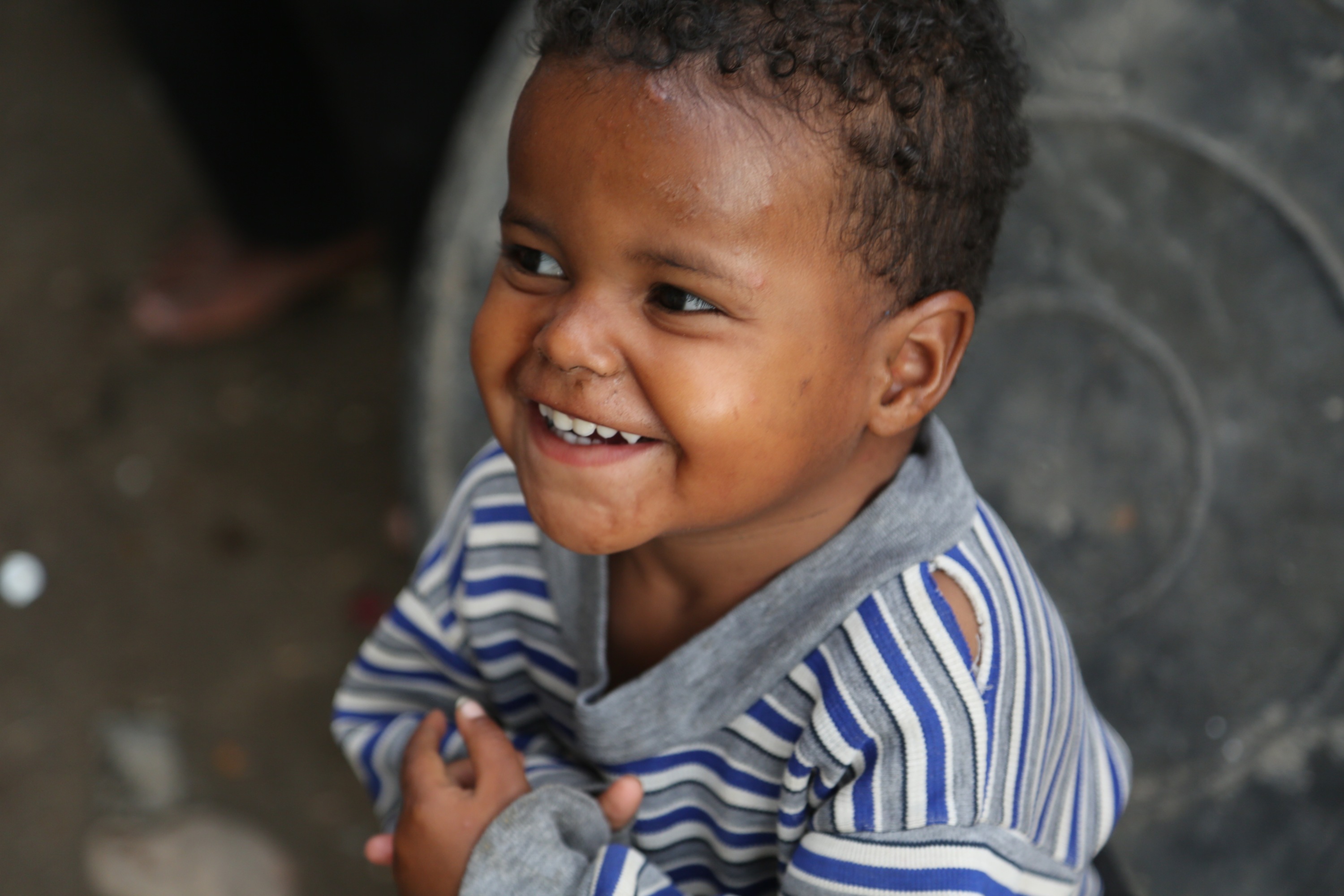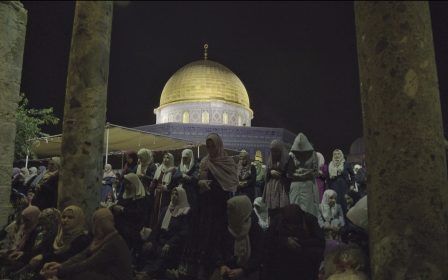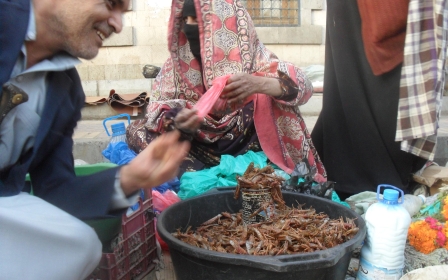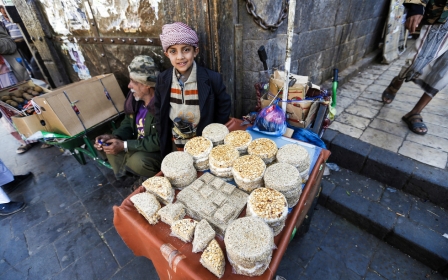How the joy of Eid masks an unbearable grief for Yemeni war orphans
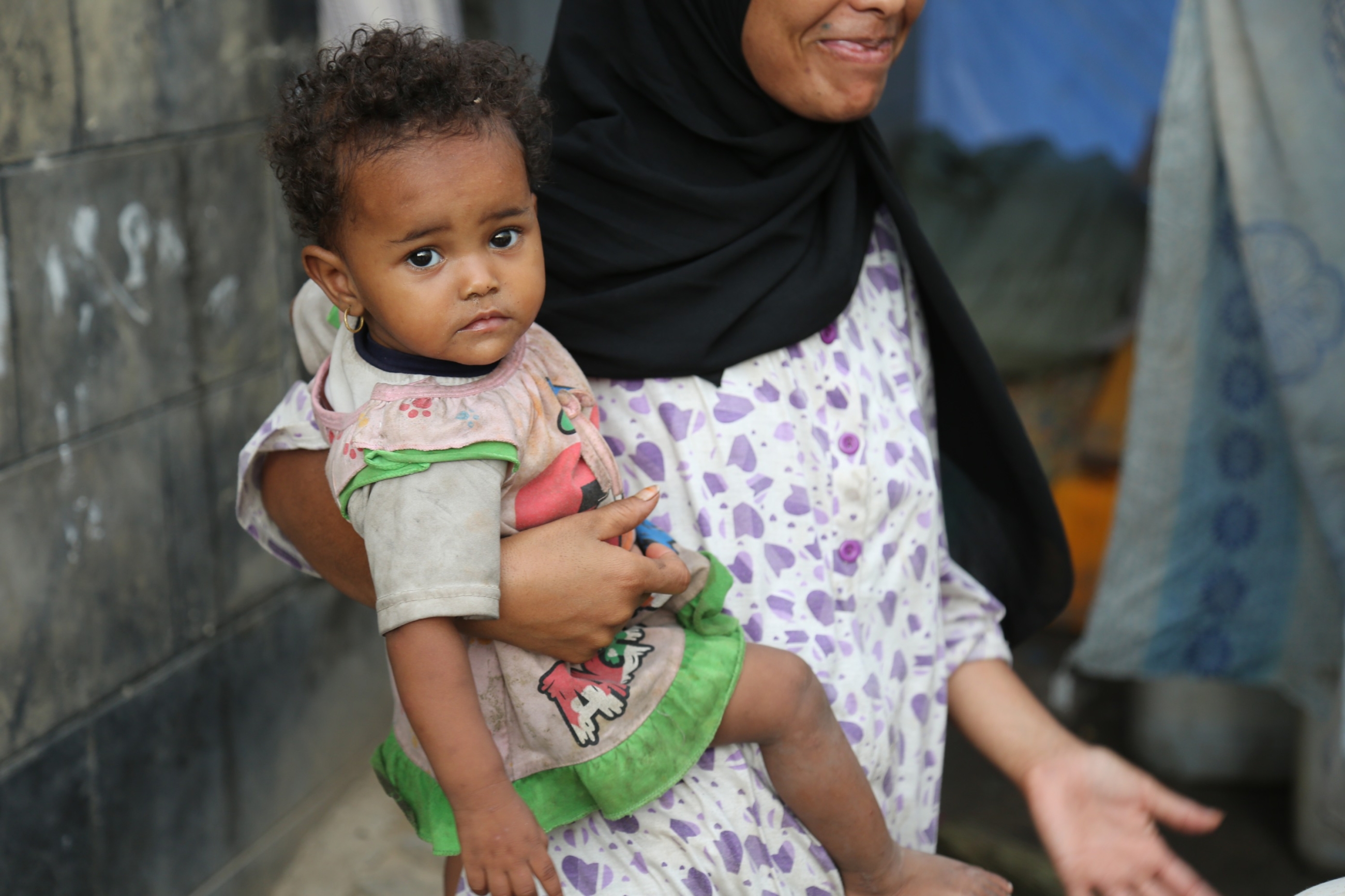
Sama Mohammed Ghalib, 10, remembers how she used to celebrate Eid before the war. Along with her parents and four sisters, she would go to the market in the city of Taiz before the holidays to buy new clothes, chocolates and sweets to enjoy for the occasion.
But Sama’s happy childhood memories ended when both of her parents were killed in the first months of the Saudi-led military assault on Yemen in 2015.
“After our parents’ deaths, we do not go to the market to buy new clothes, we don’t enjoy it anymore,” Sama tells Middle East Eye. “We do not feel the happiness of Eid.
“The war turned our lives into hell and things can’t get better. All the good days have gone since my parents were alive.”
Sama is one of thousands of children who have become orphans in the last four years. According to a UN commissioned report, more than 200,000 people have been killed or died of war-related disease and hunger since 2015, including thousands of civilians.
New MEE newsletter: Jerusalem Dispatch
Sign up to get the latest insights and analysis on Israel-Palestine, alongside Turkey Unpacked and other MEE newsletters
Instead of being a time of joy, the arrival of Eid al-Fitr - the holiday marking the end of the Muslim holy month of Ramadan - is a sad reminder for many Yemeni children of what they’ve lost.
Loss upon loss
Sama was six years old when the war broke out. At the time, her father, Mohammed Ghalib, used to sell boiled potatoes near the family home in the al-Jahmaleya neighbourhood of Taiz, in southwestern Yemen.
In May 2015, fierce clashes between Houthi rebels and forces loyal to Saudi-backed President Abd Rabbu Mansour Hadi reached Jahmaleya.
While most residents of the neighbourhood fled, the Ghalibs had nowhere to go. Meanwhile, Mohammed was undeterred by the approaching violence, as he did not believe that the warring parties would target civilians.
But on 30 May, he was shot by a sniper in the street while he was working.
“No one dared to take him from the street to a hospital because of the ongoing fighting, so he died in the street,” Sama said.
After Mohammed’s death, Sama’s mother Ibtisam resorted to working as a house cleaner in Taiz to eke out a living and provide for Sama and her four sisters, who at the time were between four and 10 years old.
But respite was brief.
“In August 2015, shelling targeted our house and killed my mother while she was cooking us lunch,” Sama recalls.
Sama was the only sibling in the house when it was hit but managed to make it out alive.
After both of their parents’ deaths, the five Ghalib sisters were now orphans.
A widowed aunt, 40-year-old Thikra Ghalib, took the young girls under her care and now lives with them in a basement in Jahmaleya.
“After my parents’ death, our dream was only to find someone to substitute our parents’ love and help us overcome our current situation,” Sama said.
“No one can replace our parents’ love, but my aunt has been doing her best to help us meet our basic needs.”
Vulnerable children
The Taiz province is one of the areas in Yemen, where countless children have been orphaned because of the war, leaving them particularly vulnerable and in need.
Mona Mohammed - a social activist and an employee of the association al-Noor in Taiz, which assists women and children - said the number of orphans was always increasing, with their life circumstances only going from bad to worse amid war and economic difficulties.
“Organisations and associations do their best to help orphans, but every day there are new orphans and organisations cannot help them all,” Mohammed told MEE. “So we now see some orphans resorting to work in order to help their families.”
Thikra Ghalib, Sama’s aunt, told Middle East Eye that because she did not have a stable enough source of income as a widow to provide a decent living for her nieces, Sama and her sisters have had to start working after school.
A generous donor helped Sama and her sisters open a small shop near their home to help them earn a living. Since 2017, the Ghalib girls have been working there, selling basic groceries like biscuits and water.
However, “the income of the shop is 1,500 Yemeni rial ($3) on a good day”, Thikra said.
“This is not enough for the whole family, but it reduces our suffering.”
Rahma has faced similar struggles since her husband Shawqi* was killed by shelling in 2017, leaving her alone to provide for her five young children, who are now between three and 11 years old.
“Most people are in need of assistance and there is no one to help us with food and basic services but [humanitarian] organisations,” Rahma told MEE. “We receive some food and money from organisations but that is not enough for the whole family.”
She thanked the organisations for their existing support and expressed hope that they would redouble their efforts to help orphans.
While Mona Mohammed said that orphans may enjoy normal lives if the war ends, far too many struggle to meet their basic needs - whether on an everyday basis or during special occasions such as Eid.
“Certainly most of those orphans do not celebrate Eid, but consider Eids to be bad days that bring back the bad memories of losing their parents,” she said.
Good days gone
With Ramadan culminating on this week with Eid al-Fitr, orphans’ difficult living conditions are made harder amid reminders of better days.
“Before Eids, I used to go to the market with my parents and sisters and buy new clothes and sweets. We would enjoy walking in the crowded streets while shops played Eid songs,” Sama remembers. “We also used to go to the Taiz zoo and play in the park. My father used to buy us some toys.
“I don’t believe these good days can come back again.”
Thikra confirmed that the holidays were a particularly difficult time for her nieces.
“The girls do not feel with the happiness of Eid because their parents were killed, and because we are poor people and cannot provide them with all their needs,” she explains.
These days, while families in Taiz enjoy the rituals of preparing for the holidays, the Ghalibs stay working at their little shop.
“All the other children enjoy Eid with their parents while we spend it in the shop to earn some money that can help us to buy enough food to eat on Eid,” Sama says.
Rahma said the absence of her husband Shawqi also weighs on her children.
“My husband used to buy new clothes for our children every Eid and we used to celebrate the holiday together in our house,” she reminisces. “But nowadays the children do not feel the joy of Eid. An organisation provided the children with new clothes, but they aren't happy because they lost the enjoyment of shopping with their father and buying what they want.”
When her children think of the moments they used to spend with their father before and during Eid, Rahma says, some will begin to cry.
But despite the hardship and sadness, Sama says she hopes she and her sisters can move forward towards a more hopeful future.
“I hope that organisations can help us with our needs so we can focus on our studies and become productive members of society,” she says. “The war deprived us of our parents, so we do not want to lose our future.”
*Name changed
This article is available in French on Middle East Eye French edition.
Middle East Eye delivers independent and unrivalled coverage and analysis of the Middle East, North Africa and beyond. To learn more about republishing this content and the associated fees, please fill out this form. More about MEE can be found here.


